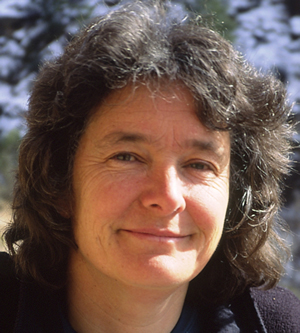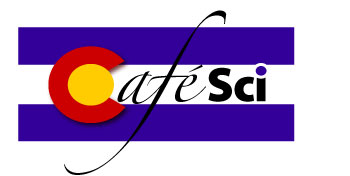Fran Bagenal is professor of astrophysical and planetary
sciences at the University of Colorado, Boulder and is a co-investigator on the New Horizons mission.
Her main area of expertise is the study of charged particles trapped in planetary magnetic fields.
She is interested in finding out if the solar wind interaction with Pluto's escaping atmosphere
acts like a comet.
Dr. Bagenal received her doctorate degree from MIT in 1981 and spent five years as a postdoctoral
researcher at Imperial College, London, before returning to the United States for research and faculty
positions in Boulder, Colorado.
She has participated in many of NASA's planetary exploration missions, including the Voyager mission
to Jupiter, Saturn, Uranus and Neptune.
She was on the science teams of the Galileo and Deep Space 1
missions and looks forward to participating in the recently-selected Juno mission to Jupiter.
Dr. Bagenal chairs NASA's Outer Planet Assessment Group that provides input from the scientific
community on exploration of the outer solar system.
You can read the
transcript or listen to a podcast of a recent NASA interview with Fran about New Horizons.
In March Fran Bagenal delivered a thorough and stern lesson to the House of Representatives' Science Committee
on the consequences of the 2007 budget proposal for NASA.
Read the full transcript here.
Her conclusions were:
1. NASA's investment in science has had a high payoff; it has spurred advances in leading edge technologies and has been instrumental in educating the next generation of scientists.
2. The claimed increase in science's share of the NASA budget is not reflected in science activity and in part arises from a change in accounting rules.
3. There will be a precipitous drop in launches of science missions beginning in 2010 and continuing forward.
4. The Explorer program is experiencing dramatic cuts and set-backs.
5. The Sounding Rocket Program, which serves our nation as a space academy, is withering after more than a decade of flat funding.
6. The FY07 budget makes major cuts in the Research and Analysis Program, which will affect disproportionately the youngest space scientists, and place the health of the space science "workforce" at risk.
|

|
Space exploration is always fun and exciting - venturing out into the
vastness, getting glimpses of new worlds, rockets, robots, etc. The New
Horizons mission to Pluto is the little spacecraft on the biggest
rocket that goes to the farthest planet. For the price of a Starbucks
coffee per taxpayer we have a 9-year mission that will show us what
this cold, icy chunk, its companion Charon and two recently-discovered
tiny moons all look like. Moreover, Pluto's geological features, frosty
surfaces and escaping atmosphere tell us about a key episode in the
formation of the solar system when the gas giant planets were embroiled
in a massive snowball fight.
The New Horizons website is fascinating and full of information. Check out especially the SCIENCE section, most of which Fran Bagenal wrote.
Click the image:

The
Student Dust Counter has a
fun website that was put together by CU
undergraduates and includes video interviews of the students who built
the instrument.


